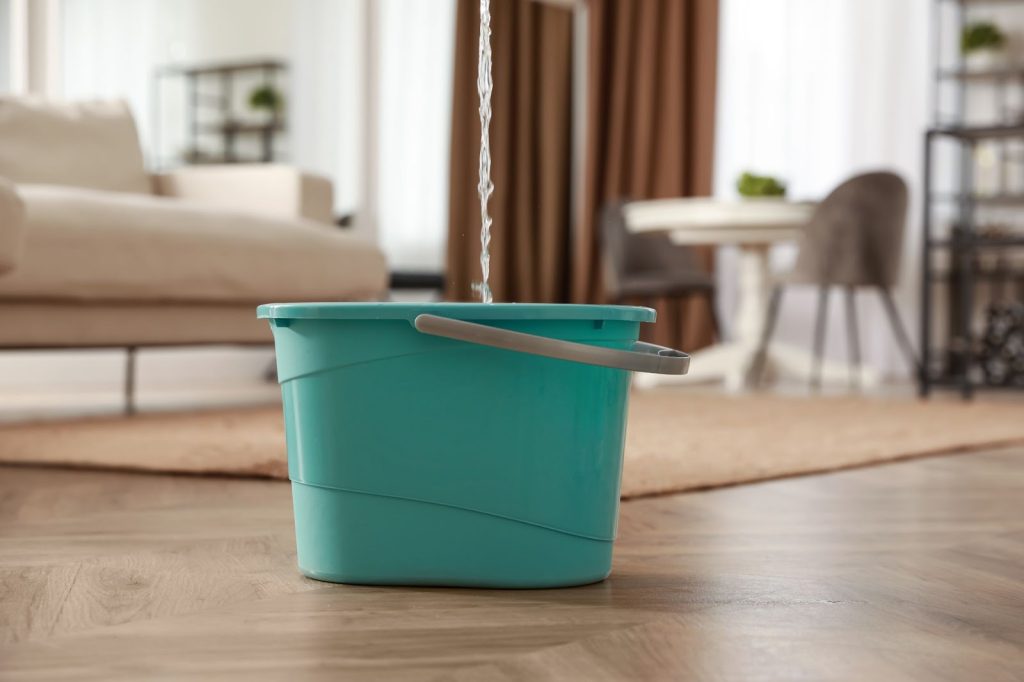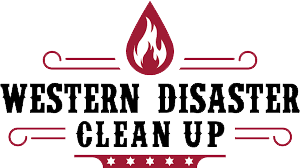As a property owner, few things are as frustrating and disastrous as a home flood.
The amount of damage that can occur when large or small amounts of water enter your home is devastating. Even the slightest bit of flooding can inflict severe damage in its wake to a property. Whether your home is affected by extreme weather, faulty appliances, an overflowing toilet, or another cause of floods, the damage left behind is no good.
It’s hard to know what to do amid an emergency, so preparing to handle an accident or disaster in the future is key. If you’re a property owner, taking the time to understand the crucial steps to take after a home flood could make or break your repair, restoration, and reconstruction process.
Learn what you should do (and not do) when handling a flood in house below.
Flood in house: The 7 dos and don’ts you need to know
1. DO stop the water at the source
While there are some instances where you will not have control over the flow of water (like an act of nature), there are other times where you are able to find the source of water and turn it off or seal it up.
The easiest and most effective method to stop water flow is to turn off the main water valve to your property. It is wise to locate your valve before a flood or leak-related issue occurs so you can quickly shut it off in an emergency.
2. DON’T forget to turn off the electricity
Once you’ve stopped the source of water flow, it’s imperative to turn off all electrical systems at your property. Of course, thanks to our junior high science classes, we know that water containing charged ions and impurities makes for a fantastic conductor of electricity. So, make sure you do not have to walk through or step in the water to access your fuse box.
If you cannot get to the fuse box without walking through the water, call an electrician as soon as you are able.
3. DO evacuate the premises if necessary
If a pipe bursts or a toilet is overflowing and you’re dealing with sewage waste, evacuate the property immediately and find a safe, dry spot outside your home. This evacuation landing spot might be as close as your backyard or as far away as a neighbor’s, family member’s, or friend’s house. Make sure that everyone in your party (kids, pets, friends that were at your house) are all accounted for and safe.
In the event of a natural disaster or extreme weather, locate a temporary shelter, either by listening to the local news or asking authorities. Get everyone to that shelter as quickly as possible.
Make sure you are prepared with a 72-hour kit. You never know when you’ll need to jump and run after an accident or disaster. Whether you build your own or buy a pre-made kit, you’ll be happy you have it when tragedy hits.
4. DO make sure it’s safe to return
Once things settle down, you’ll probably be eager to get back to your property and start the cleanup process. However, it’s wisest to wait until you’re certain it’s safe to return. Damage from a major storm or floods and sewage waste from a broken pipe could be severely dangerous, so hold off until local officials give you the go-ahead.
5. DON’T forget to call for help
Next, call for help. Calling for help might look different depending on your situation. If someone needs emergency medical attention, call 911. If you’re renting the property, call your landlord to let them know what’s happened. If you’re a homeowner, call your insurance company and make sure to clarify whether or not you need to wait for an adjuster to visit your home before the restoration process begins.
You’ll also want to contact a trusted disaster cleanup company and arrange an assessment sooner rather than later. Since disasters won’t always strike at a convenient time, it’s best to call a restoration specialist who is available 24/7 for emergency services.
Now is a great time to ensure these numbers are saved in your phone and are readily available.

6. DO document before cleaning and repairing
You’re back home, and you’ve called for help, but before you begin the cleaning and repairing process, it is absolutely essential to document everything for insurance purposes and wait for your insurance adjuster (if applicable).
You need to show your insurer the extent of the damage before they’ll even consider paying out. Use your cellphone’s camera to take photos and video footage of every part of the damage.
Just remember that with flooding may come sewage and other hazardous fluids and materials, so take extreme precautions when gathering your evidence. Do not touch anything, and wear necessary protective gear like gloves, waders, and waterproof boots.
7. DON’T try to attempt the cleanup process yourself
Most homeowners want to save money. Of course they do; why wouldn’t they? So they attempt to do things themselves to save a buck or two. However, in the event of a flood or other property disaster or cleanup, it’s best to leave it to the professionals to handle.
After receiving the necessary medical help and contacting your homeowner’s insurance, now is the time to call a professional water damage and Utah flood cleanup specialist. While you deal with the emotional trauma of a home flood, it’s best to leave the cleanup process to the professionals for a myriad of reasons:
- A pro will get the job done faster. A professional team has gone through this process countless times and has it down to an art.
- The experts know how to completely remove mold and mildew so that it will not return or be a health hazard.
- A professional crew has access to necessary tools, gear, products, and equipment, so you don’t have to invest or rent. Not to mention, the amount of knowledge they possess on what tools to use, when to use them, and how to use them effectively and efficiently.
- An industry expert knows what is safe and what isn’t. They know when it is safe to enter a property, how to shut off electricity, if they need PPE, etc.
Flood in house? Call the professionals at Western Disaster Clean Up today!
A home flood is undoubtedly frustrating and inconvenient, even devastating in some instances, and that’s not even including the cleanup process. If you’ve endured a flood, you have enough to deal with, so leave the Utah flood cleanup to the experts at Western Disaster Clean Up.
The Western Disaster Clean Up crew is here to make the cleanup process as simple and painless for you as possible. We’re here to do all the dirty work (literally!), and have handled thousands of flood clean ups, fire and smoke damage restorations, sewage backup repairs, mold remediation, and more.
Whether it’s a simple broken pipe or a basement that’s fully submerged underwater, our knowledgeable technicians have the experience and skills to restore your property. You never know when a disaster or an accident will occur, which is why our trusted team is available 24/7 for emergency services.
Contact Western Disaster Clean Up for your Utah flood cleanup today.

